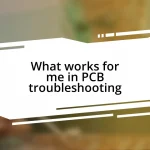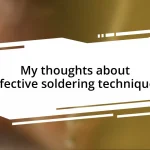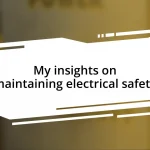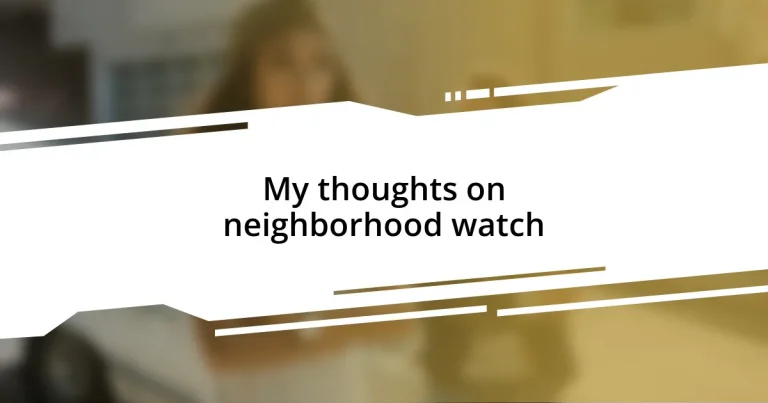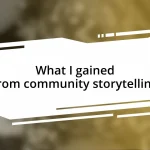Key takeaways:
- Neighborhood watch programs foster community safety and crime prevention through vigilance and communication among residents.
- Key roles within a neighborhood watch include patrolling, communicating crime trends, reporting suspicious activities, educating residents, and offering support.
- Collaborative efforts among neighbors can transform concerns into proactive solutions, strengthening community bonds and fostering a sense of unity.
- Building a network of support not only addresses safety issues but also creates lasting connections among community members, akin to an extended family.
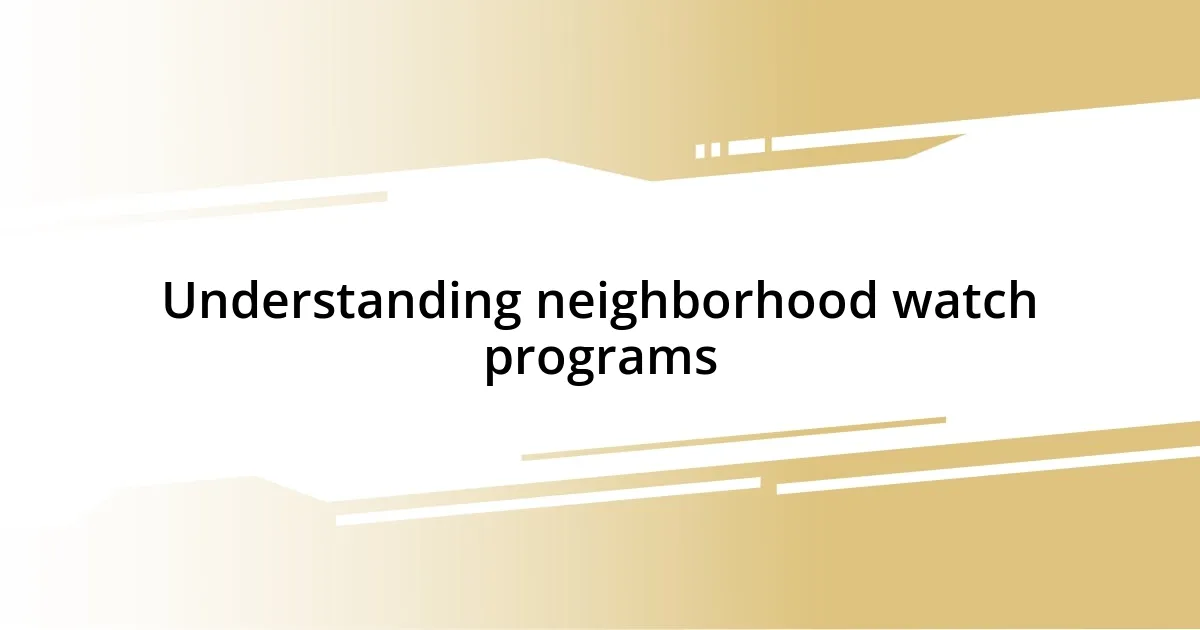
Understanding neighborhood watch programs
Neighborhood watch programs are essentially community-driven initiatives aimed at promoting safety and crime prevention. I remember when my neighborhood first launched ours; the excitement was palpable. Neighbors gathered to share concerns, and there was a genuine feeling of camaraderie that I hadn’t experienced before.
These programs encourage residents to be vigilant and proactive about local crime issues, fostering an environment where everyone looks out for each other. Have you ever thought about how empowering it is to know your neighbors are watching your back? When a community comes together with shared goals, it can transform the atmosphere, making streets feel safer and more welcoming.
In my experience, the effectiveness of a neighborhood watch relies heavily on communication and trust among residents. I recall attending meetings where residents shared not only experiences but also strategies that worked for them, turning fear into action. It’s remarkable how a few committed individuals can make a significant difference, instilling a sense of security within the entire neighborhood.
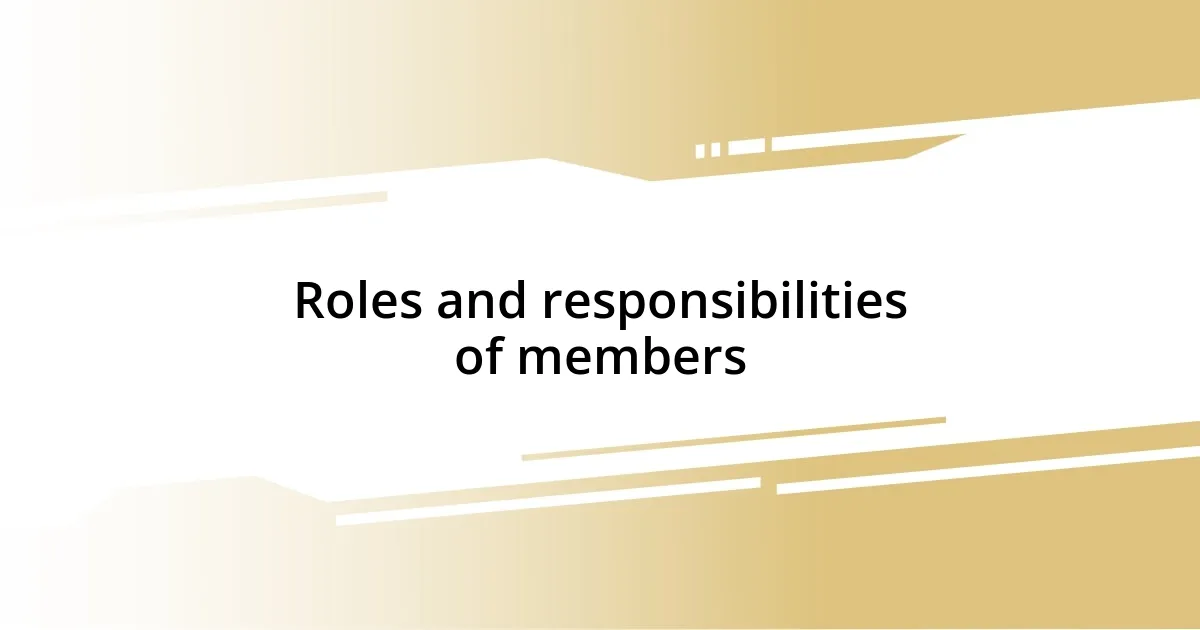
Roles and responsibilities of members
Members of a neighborhood watch have distinct roles and responsibilities that help maintain safety and foster community connections. I’ve found that when everyone understands their part, it makes a huge difference in the effectiveness of the program. For instance, some members take on the role of organizers, scheduling meetings, and ensuring clear communication among everyone involved. This was particularly important in my neighborhood, where one person stepped up to create a group chat that kept us all informed in real time.
Here’s a quick rundown of essential roles and responsibilities within a neighborhood watch:
- Patrol: Regularly walk or drive through the neighborhood, observing any suspicious activities.
- Communicate: Share information about local crime trends and safety tips with fellow members and the broader community.
- Report: Notify local law enforcement about any unusual behavior or incidents promptly.
- Educate: Organize workshops or gatherings to educate residents about crime prevention strategies.
- Support: Offer assistance to neighbors who might feel vulnerable, creating a network of trust and support.
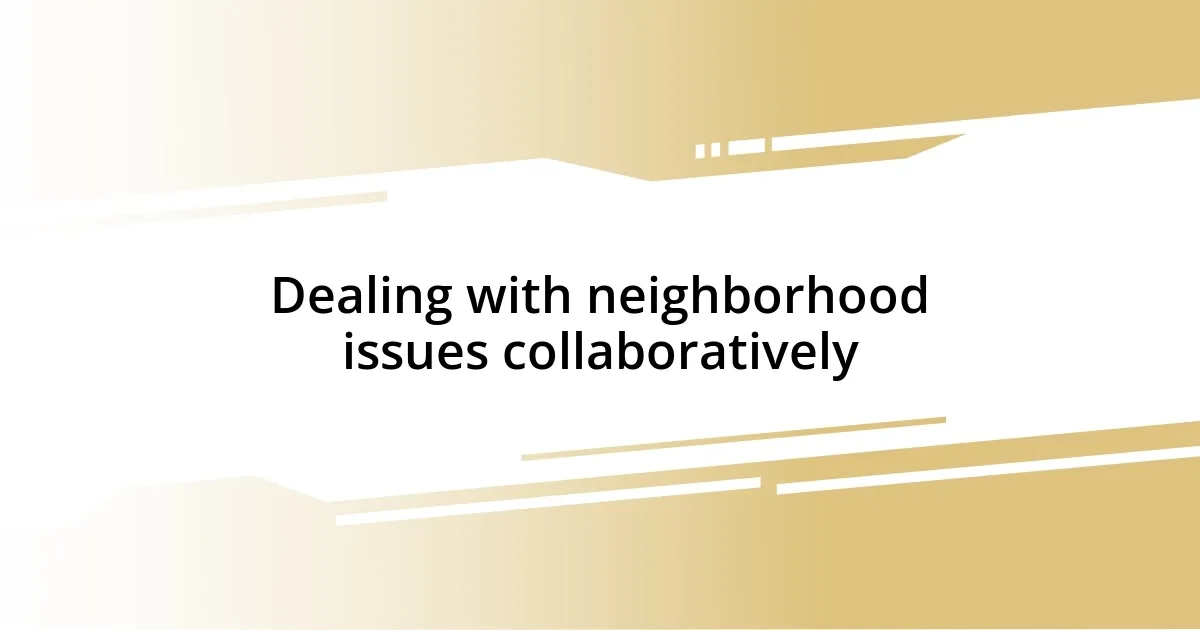
Dealing with neighborhood issues collaboratively
Working together to tackle neighborhood issues can really foster a sense of unity. I remember a time when several neighbors and I noticed an increase in car break-ins. Instead of feeling helpless, we came together to discuss our concerns over coffee in someone’s backyard. The experience was eye-opening; sharing our stories made my neighbors’ fears feel less daunting, and we collectively brainstormed solutions, turning anxiety into proactive measures.
Collaboration doesn’t just mean addressing crime; it also encompasses community events that strengthen relationships. For instance, we organized a block party after hearing some complaints about “stranger danger.” Through sharing food, laughter, and experiences, we created an atmosphere of security and trust. Have you ever noticed how casual conversations can lead to valuable insights? By engaging with each other in such relaxed settings, we inadvertently deepened our vigilance for our neighborhood.
In my view, the potency of working together lies in building a network of support. When I faced an unexpected emergency, it was my neighbors who rallied to help, dropping off meals and checking in on my family. This experience reinforced my belief that handling neighborhood issues collaboratively not only addresses safety concerns but also cultivates lasting connections. It’s like creating an extended family, one that you can count on when times get tough.
